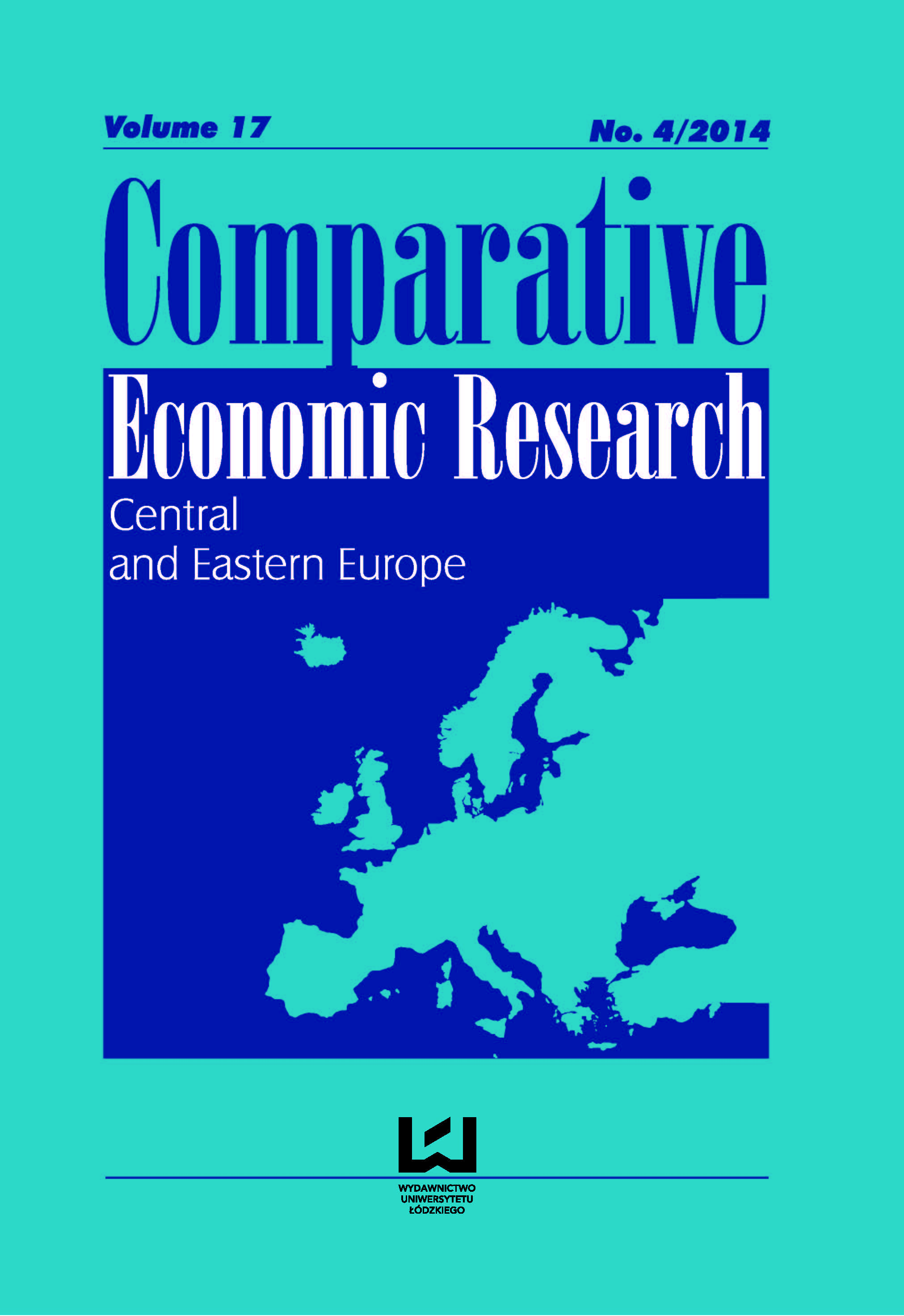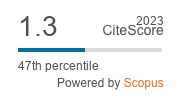The Effect Of Omitted Spatial Effects And Social Dependence In The Modelling Of Household Expenditure For Fruits And Vegetables
DOI:
https://doi.org/10.2478/cer-2014-0038Keywords:
social interaction, consumption behavior, spatial multilevel modelAbstract
As is well known, ignoring spatial heterogeneity leads to biased parameter estimates, while omitting the spatial lag of a dependent variable results in biasness and inconsistency (Anselin, 1988). However, the common approach to analysing households’ expenditures is to ignore the potential spatial effects and social dependence. In light of this, the aim of this paper is to examine the consequences of omitting the spatial effects as well as social dependence in households’ expenditures. We use the Household Budget Survey microdata for the year 2011 from which we took households’ expenditures for fruits and vegetables. The effect of ignoring spatial effects and/or social dependence is analysed using four different models obtained by imposing restrictions on the core parameters of the hierarchical spatial autoregressive model (HSAR). Finally, we estimate the HSAR model to demonstrate the existence of spatial effects and social dependence. We find the omitted elements of the external environment affect negatively the estimates for other spatial (social) effect parameters. Especially, we notice the overestimation of the random effect variance when the social dependence is omitted and the overestimation of the social interaction effect when the spatial heterogeneity is ignored.
Downloads
References
Anselin L. (1988), Spatial Econometrics: Methods and Models, Vol. 4. Springer.
Google Scholar
Anselin L. (1990), Spatial Dependence and Spatial Structural Instability in Applied Regression Analysis, ʻJournal of Regional Science 30.2ʼ, pp. 185-207.
Google Scholar
Anselin L., Griffith D. A. (1988), Do spatial effects really matter in regression analysis?, ʻPapers in Regional Scienceʼ, 65(1), pp. 11-34.
Google Scholar
Ball K., Crawford D., Mishra, G. (2006), Socio-economic inequalities in women's fruit and vegetable intakes: a multilevel study of individual, social and environmental mediators, Public health nutritionʼ, 9(05), pp. 23-630.
Google Scholar
Baltagi B. H., Fingleton B., Pirotte A. (2014), Spatial lag models with nested random effects: An instrumental variable procedure with an application to English house prices, Journal of Urban Economicsʼ, 80, pp. 76-86.
Google Scholar
Cameron A.C., Trivedi P.K. (2005), Microeconometrics: Methods and Applications, Cambridge University Press.
Google Scholar
Central Statistical Office (2012), Household Budget Survey in 2011, Statistical Information and Elaborations, Warsaw.
Google Scholar
Corrado L., Fingleton B. (2012), Where is the economics in spatial econometrics?, ʻJournal of Regional Scienceʼ, 52(2), pp. 210-239.
Google Scholar
Dong, G., Harris, R J. (2014), Spatial Autoregressive Models for Geographically Hierarchical Data Structures, Geographical Analysis.
Google Scholar
Fotheringham S.A., Brunsdon C., Charlton M. (2003), Geographically Weighted Regression: The Analysis of Spatially Varying Relationships, John Wiley & Sons.
Google Scholar
Giskes K., Turrell G., Van Lenthe F. J., Brug J., Mackenbach J. P. (2006), A multilevel study of socio-economic inequalities in food choice behaviour and dietary intake among the Dutch population: the GLOBE study, ʻPublic health nutritionʼ, 9(01), pp. 75-83
Google Scholar
LeSage J., Pace R. K. (2010), Introduction to spatial econometrics, CRC press.
Google Scholar
Longford N.T. (1993), Random Coefficient Models, Clarendon Press.
Google Scholar
Plummer M., Best N., Cowles K., Vines K. (2006), CODA: Convergence diagnosis and output analysis for MCMC, R news, 6(1), 7-11.
Google Scholar
Downloads
Published
How to Cite
Issue
Section
License

This work is licensed under a Creative Commons Attribution-NonCommercial-NoDerivatives 4.0 International License.











